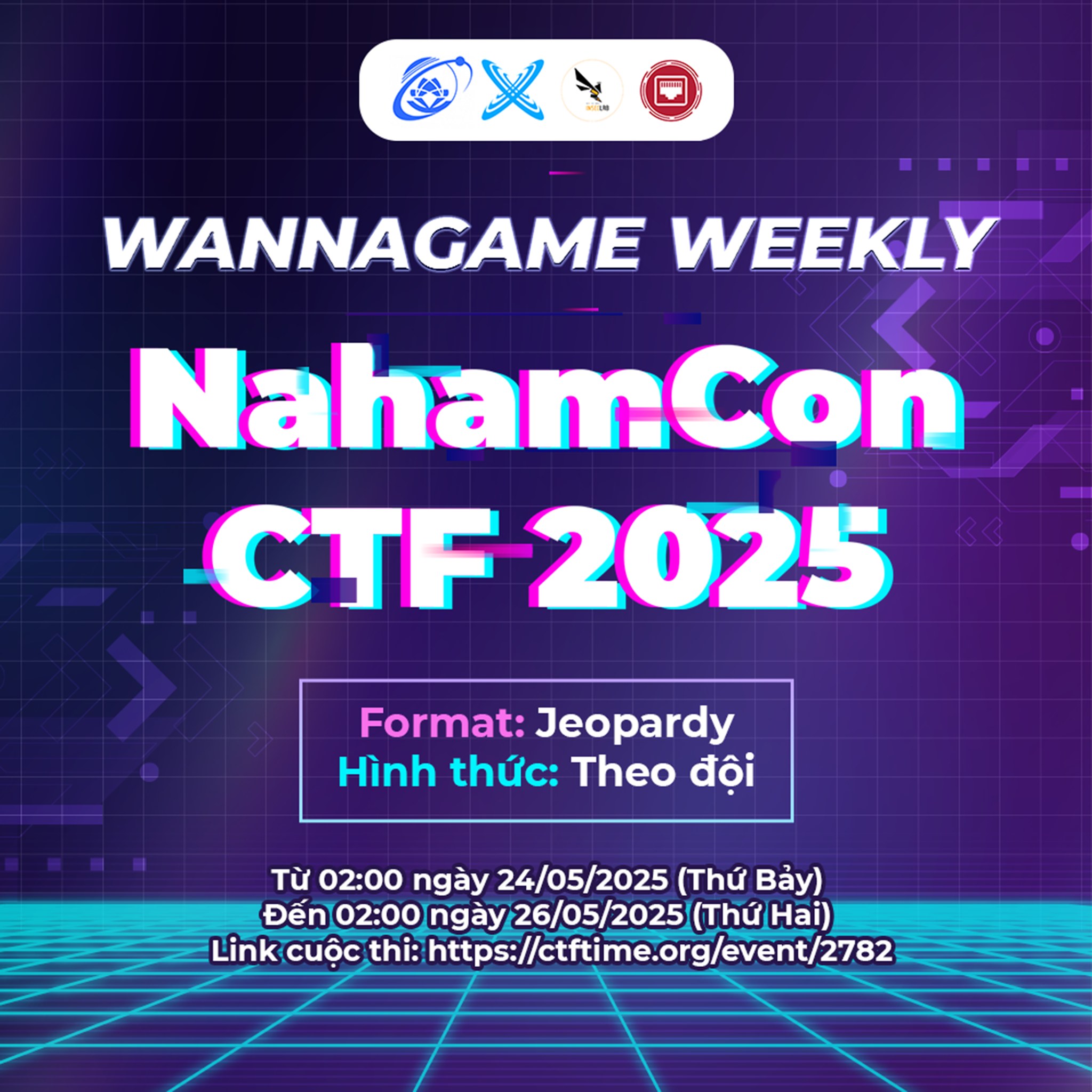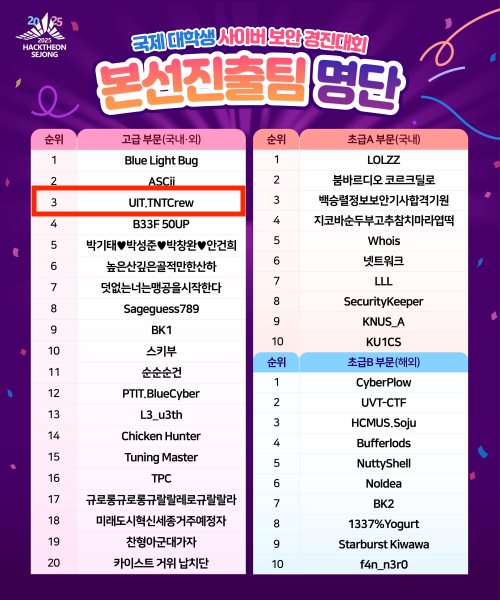🎉️🎉️🎉 Chúc mừng nhóm sinh viên ngành An toàn thông tin (Khoa Mạng máy tính và truyền thông) cùng nhóm nghiên cứu InSecLab đã có bài báo nghiên cứu về Mã độc được chấp nhận đăng tại Hội nghị khoa học quốc tế CITA 2024.
🌟 Hội nghị khoa học CITA lần thứ 13, năm 2024 (𝐓𝐇𝐄 𝟏𝟑𝐓𝐇 𝐂𝐎𝐍𝐅𝐄𝐑𝐄𝐍𝐂𝐄 𝐎𝐍 𝐈𝐍𝐅𝐎𝐑𝐌𝐀𝐓𝐈𝐎𝐍 𝐓𝐄𝐂𝐇𝐍𝐎𝐋𝐎𝐆𝐘 𝐀𝐍𝐃 𝐈𝐓𝐒 𝐀𝐏𝐏𝐋𝐈𝐂𝐀𝐓𝐈𝐎𝐍𝐒) sẽ được tổ chức bởi Đại học Công nghệ Thông tin và Truyền thông Việt Nam - Hàn Quốc (VKU), thành viên của Đại học Đà Nẵng, với sự hỗ trợ của các cơ sở nghiên cứu và đào tạo khác thuộc Hiệp hội Nghiên cứu Đổi mới Sáng tạo ASEAN (ACIR) cũng như Vietnam ICT Association of Faculties-Institutes-School-Universities (FISU Việt Nam). Hội nghị sẽ diễn ra vào ngày 19-20/7/2024 tại Thành phố Đà Nẵng và Thành phố Hội An, Việt Nam.
Tên bài báo:
- "𝐌𝐮𝐥𝐭𝐢𝐦𝐨𝐝𝐚𝐥 𝐃𝐞𝐞𝐩 𝐋𝐞𝐚𝐫𝐧𝐢𝐧𝐠 𝐅𝐞𝐞𝐝𝐛𝐚𝐜𝐤 𝐟𝐨𝐫 𝐆𝐞𝐧𝐞𝐫𝐚𝐭𝐢𝐧𝐠 𝐄𝐯𝐚𝐬𝐢𝐯𝐞 𝐌𝐚𝐥𝐰𝐚𝐫𝐞 𝐒𝐚𝐦𝐩𝐥𝐞𝐬 𝐚𝐠𝐚𝐢𝐧𝐬𝐭 𝐌𝐚𝐥𝐰𝐚𝐫𝐞 𝐃𝐞𝐭𝐞𝐜𝐭𝐨𝐫"
Sinh viên thực hiện:
- Lưu Nguyễn Công Minh - ATTT chương trình Tài năng 2020
- Lê Trọng Nhân - ATTT chương trình Chất lượng cao 2020
Giảng viên hướng dẫn:
- ThS. Nghi Hoàng Khoa
- TS. Phạm Văn Hậu
Thông tin chung:
CITA (Conference on Information Technology and its Application) là hội nghị khoa học thường niên về công nghệ thông tin và các ứng dụng của nó trong mọi lĩnh vực quan trọng: Khoa học dữ liệu & AI, Xử lý hình ảnh và ngôn ngữ tự nhiên, Kỹ thuật phần mềm và hệ thống thông tin, Mạng và Truyền thông, Kinh tế kỹ thuật số. Mục tiêu chính của hội nghị là tạo ra một diễn đàn quy tụ, kết nối các nhà nghiên cứu, nhà khoa học, chuyên gia Việt Nam và quốc tế tham gia vào các lĩnh vực công nghệ thông tin và ứng dụng của nó.
Abstract:
"As data driven-based Windows malware detectors become increasingly prevalent, the need for robust evaluation and enhancement of adversarial malware generation techniques also becomes imperative, as malicious actors will adapt and enhance their malware to evade detection. There are numerous works that introduce new techniques or enhancements for adversarial malware. One of these approaches is to leverage an iterative process, dynamically modifying adversarial malware with populations of injections based on feedback from a machine learning-based detector, aiming to enhance evasion capabilities through successive iterations. It is obvious that the effectiveness of a robust adversarial malware is influenced not only by the quality of the manipulation payload injected into the malware, but also by the capabilities and strength of the detector that interacts with the manipulated malware. In this paper, we introduce a multimodal approach to generate adversarial malware with robustness specifically fortified through the feedback of a deep learning (DL) detector with multiple modalities in the progress of adversaries generation. We evaluate the effectiveness of our approach in comparison to the implementation of conventional unimodal detectors such as MalConv in previous works with our proper adaptation in manipulation technique. We also consider the malware detection performance of the common antivirus platform VirusTotal with adversarial samples, and notably that the robust adversarial malware was able to evade up to average 3 detection programs more than the initial malware does."




